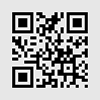
8
Included Accessories
IFS4 dedicated foot switch for the TB100H/TB100R
Power Cable
Owner’s Manual
Foot switch cable
The included items are stored in the parts box on the back of the TB100H cabi-
net.
Foreword
Thank you for purchasing the Ibanez TB100H guitar amplifier. Read this manual
thoroughly prior to using your amplifier in order to get the most out of the func-
tions available. Then keep the manual in a safe place.
Precautions during use
• Do not subject the amplifier to shocks by dropping, etc., or treat it roughly in any
way.
• Place the amplifier carefully in a stable position.
• Ensure that the power supply has been switched off when not in use. Also,
remove the power cord from the power supply socket when the amplifier is not
to be used for an extended period of time.
• Do not use or store the amplifier in locations where it is subject to direct sunlight
or in environments that experience extreme temperatures and humidity levels.
• Reduce the volume to “0” or switch off the power supply when connecting the
guitar shielded cable and the effects or other cables required for external con-
nection. Note that the noise generated when plugs are inserted and removed
may cause severe damage to the equipment.
• To avoid the risk of fire, do not place containers of liquid (such as vases) on the
amp.
Setup
1. Connecting a speaker cabinet
1) The TB100H can be connected to a speaker system of 4
Ω
impedance and
120W or greater power handling. Use a speaker cable with 1/4" plugs to con-
nect the
L
SPEAKER OUTPUT jack to the speaker.
2) The TB412A/TB412S / 4
Ω
/16
Ω
(MONO) cabinet rated at 400 Wrms is ideal for
connection to the TB100H. If you connect one TB412 cabinet, set the switch to
MONO mode and connect the cable to the 4
Ω
jack. If you connect two TB412
cabinets, set the switches of both to MONO mode and connect the cable to the
16
Ω
jack.
*
Caution:
Speakers must be connected correctly. In particular if you are using more than one
speaker system, the total impedance of the connected speaker system must not be less than
4
Ω
. Specifically, speaker connections such as a single 4
Ω
unit, 8
Ω
×
8
Ω
, 16
Ω
×
16
Ω
, or 4pcs
×
16
Ω
are appropriate. Connections such as 4
Ω
×
4
Ω
, 4
Ω
×
8
Ω
, 4
Ω
×
16
Ω
, 8
Ω
×
8
Ω
×
8
Ω
, 4
Ω
×
8
Ω
×
8
Ω
, or 4pcs
×
8
Ω
are not appropriate. With the latter type of connection, an excessive
load will be placed on the amp, and it may malfunction or fail to operate correctly.
2. Connecting cables
1) Connect the included power cable from an AC outlet to the rear panel
P
AC inlet.
2) Using a shielded guitar cable, connect your electric guitar to the
1
INPUT jack.
3) If you are using compact effect devices, connect effects such as distortion or compres-
sor between the guitar and amp. If you will be using the TB100H’s pre-amp to create
distortion, it is effective to connect spatial-type effects such as chorus, delay, or reverb,
or other types of effects such as noise gate, graphic EQ, and limiter using the
F
SEND
/
G
RETURN jacks. If you are using a floor-type multi-effect unit and want to use the
distortion of the multi-effect unit, connect it between your guitar and the amp.
4) If you want to use the included foot switch, connect the included dual-stereo
cable to the foot switch, and then connect plugs 1 and 2 of the foot switch cable
to rear panel
K
FOOT SW jacks 1 and 2.
5) Make sure that each
7
D
VOLUME control is set to “0.” Then turn on the
J
POWER switch and verify that the switch is lit.
6) Make sure that the volume control of your guitar is raised.
3. Playing the clean channel
1) Use the foot switch or the
9
CHANNEL switch (located in the center of the front
panel) to make the green LED light.
2) First raise the
7
VOLUME control to approximately 5, and then raise the
3
GAIN control to adjust the volume.
1. At this time, it will be easier to produce distortion if you select a humbucking
pickup (particularly the neck position) on your guitar, raise the
3
GAIN con-
trol to approximately 7--10, and boost the equalizer settings.
2. If you particularly want to avoid distortion, raise
7
VOLUME, and adjust the
volume by lowering the
3
GAIN.
3. If you particularly want to improve the S/N ratio, raise
3
GAIN as far as possible
without causing distortion, and adjust the volume by lowering
7
VOLUME.
3) To obtain a naturally distorted “crunch” sound, turn on the
2
BOOST switch, raise the
3
GAIN control, and adjust
7
VOLUME after you create the distortion in the pre-amp.
4) Use the
4
5
6
equalizer,
8
REVERB, and
H
PRESENCE controls to adjust
the tone as desired, and then use
7
VOLUME to adjust the volume once again.
4. Playing the overdrive channel
1) Use the foot switch or the front panel
9
CHANNEL switch to make the red LED light.
2) First use the
2
BOOST switch to make the LED go dark, turning it off.
3) Set
D
VOLUME to approximately 2--4.
4) Then raise
0
GAIN, and you will begin to hear sound. Adjust the degree of
distortion as desired.
5) Adjust the
A
B
C
equalizer,
B
MID SHIFT switch,
E
REVERB, and
H
PRES-
ENCE controls as desired.
6) Use
D
VOLUME to set the volume. The volume will increase if you turn on the
2
BOOST switch.
ENGLISH
